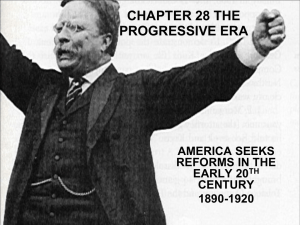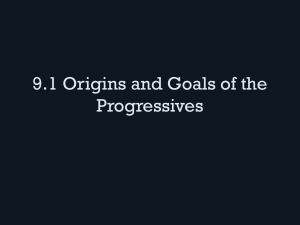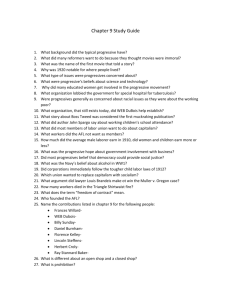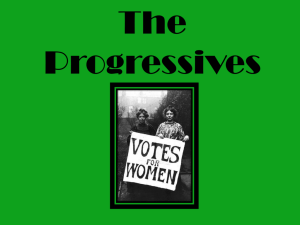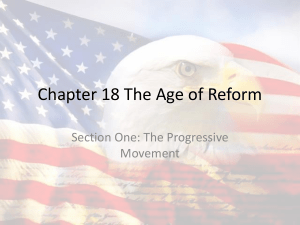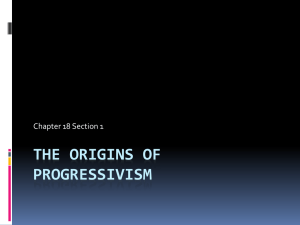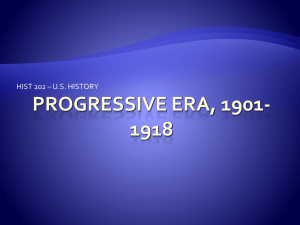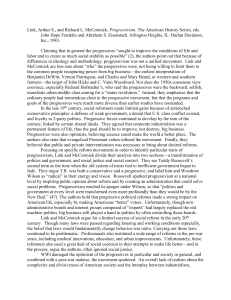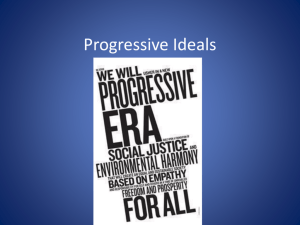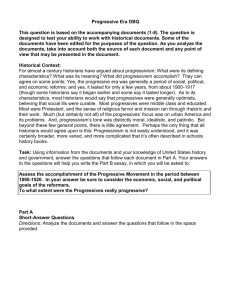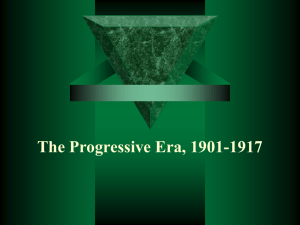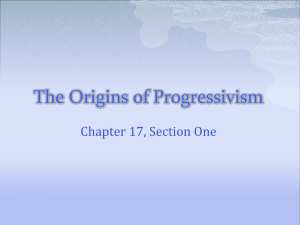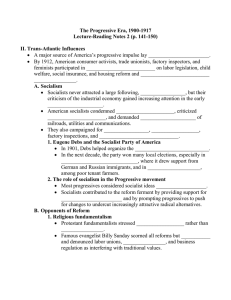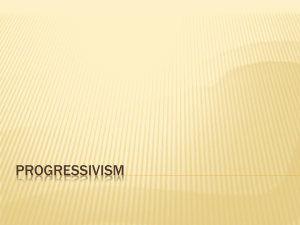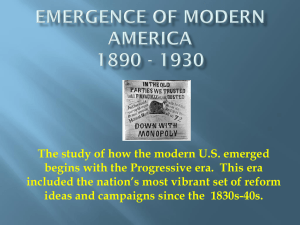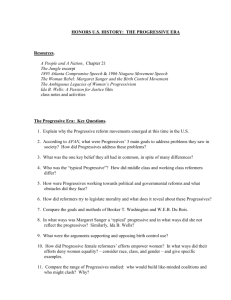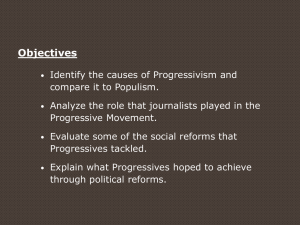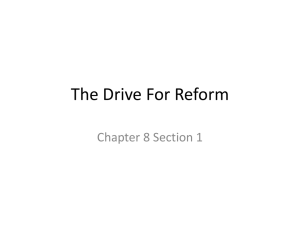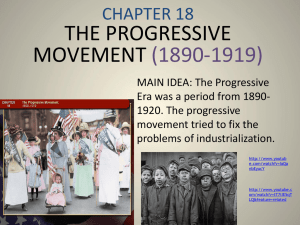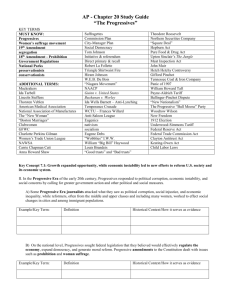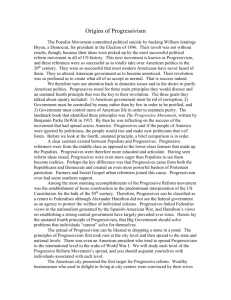11.2.9 - Progressivism
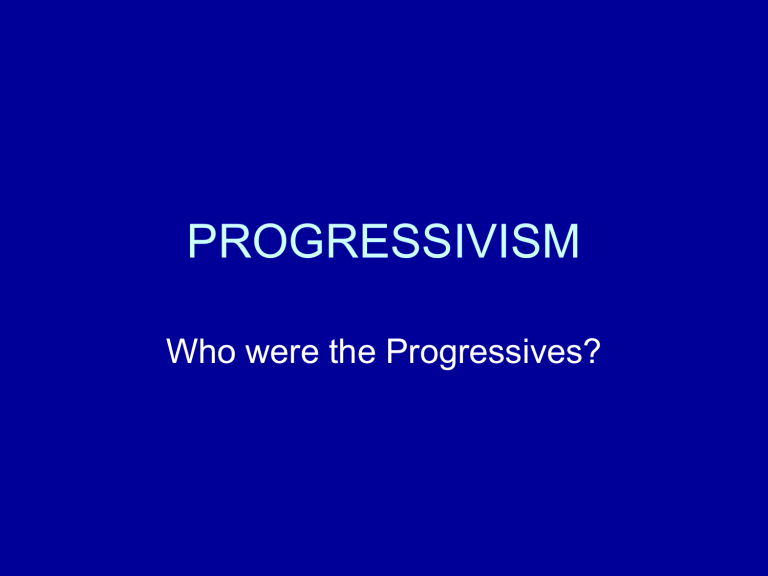
PROGRESSIVISM
Who were the Progressives?
Some Standard
Interpretations
• Progressives were responding to specific problems created by others.
• Progressives were altruistic.
• Progressivism gave women new opportunities.
• Progressivism was a white, urban, middle-class phenomenon.
Some Central Questions
• What were the origins of the Progressive
Movement?
• What role did women play in the movement?
• To what extent did workers, immigrants,
African Americans, and rural Progressives shape and participate in the movement?
p. 306-307
• “At the dawn of the new century, middleclass reformers addressed many of the problems that had contributed to the social upheavals of the
1890s…Together, these reform efforts…aimed to restore economic opportunities and correct injustices in
American life.”
p. 307
• “Other reformers felt that morality, not the workplace, held the key to improving the lives of poor people. These reformers wanted immigrants and poor city dwellers to uplift themselves by improving their personal behavior.”
p. 308
• “The WCTU reform activities, like those of the settlement house movement, provided women with expanded public roles, which they used to justify giving women voting rights.”
p. 309
• “Government reform--including efforts to give Americans more of a voice in electing their legislators and creating laws--drew increased numbers of women into public life. It also focused renewed attention on the issue of woman suffrage.”
p. 308
• “Many progressive leaders put their faith in experts and scientific principles to make society and the workplace more efficient.”
p. 325
• “..the apparent Progressive indifference to racial injustice.”
• “The NAACP…aimed for nothing less than full equality among the races. That goal, however, found little support in the
Progressive Movement, which focused on the needs of middleclass whites.”
The Presidents
• Roosevelt condemned…
• Taft pursued…
• Wilson pushed hard…
Some Central Questions
• What were the origins of the Progressive
Movement?
• What role did women play in the movement?
• To what extent did workers, immigrants,
African Americans, and rural Progressives shape and participate in the movement?
Richard Hofstadter and The
Age of Reform
• status revolution
• professionalization
• alienation
• individualism and nativism
• conservative!
Robert Wiebe and The Search for Order
• decline of
“community;” rise of
“society”
• new middle class
• rationalization, bureaucratization
• idealistic-->realistic
• minimizes conflict
Critiques
• No gender!
• No race!
• Little complication of class--both assume common class interests.
• One group’s progressivism=another’s repression.
• “In Search of Progressivism” by Daniel
T. Rodgers
Women Reformers
• Women complicate both theses.
• Rhetoric of difference
• Traditional roles and interests put in service of new roles and goals
• Women respond to AND drive reforms.
But not all women are white…
• Uplifting the race
• Claiming race, claiming gender, claiming class--shifting identities
• Implications for
DuBois/Washington debate?
Who Were the Progressives?
• Why aren’t workers’ movements generally considered Progressive?
• Why not immigrant associations or urban machines?
• Were there Progressives in rural areas?
• Why DO we study African-American
Progressives?
• Who defines the problem? On whose solutions do we focus?
